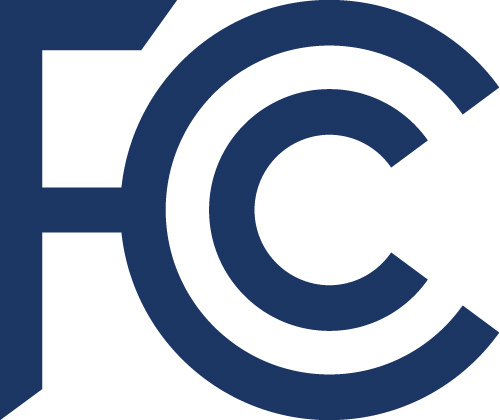Anna Gomez confirmed to fill FCC seat
Three years into the Biden administration, the Federal Communications Commission finally has all five seats filled.
The U.S. Senate voted on Thursday to confirm telecom law and policy veteran Anna Gomez as an FCC Commissioner.
“Congratulations to Anna Gomez on her confirmation by the United States Senate. I look
forward to welcoming her to the Commission,” said FCC Chairwoman Jessica Rosenworcel in a statement. “Anna brings with her a wealth of telecommunications experience, a substantial record of public service, and a history of working to ensure the United States stays on the cutting edge of keeping us all connected. Her international expertise will be a real asset to the agency. I look forward to working with her to advance the agency’s mission to ensure the benefits of modern communications reach everyone, everywhere and that the United States can continue to lead in the digital age.”
“Ms. Gomez’s career demonstrates a longstanding commitment to public service—from her leadership in the State Department’s Bureau of Cyberspace and Digital Policy to her previous service as staff counsel in the U.S. Senate and roles at the FCC, White House, and National Telecommunications and Information Administration (NTIA),” said Commissioner Brendan Carr, the longest-serving Republican on the FCC. “I welcome her as a colleague and look forward to working together on policies that will protect consumers and promote the interests of all Americans.”
The FCC, an independent regulatory body, has five seats; two are held by members of each party, with control determined by the chair, who is of the same party which holds the presidency. Since former Chairman Ajit Pai resigned at the end of the Trump administration, the FCC has been split 2-2 between Democrats and Republicans. Rosenworcel has managed this by focusing on actions with solid bipartisan support, rather than forcing 2-2 votes on issues unlikely to succeed. Now, Rosenworcel will have the votes to advance a Democratic agenda.
President Joe Biden’s first FCC nominee, Gigi Sohn, was known as a fierce defender of consumer interests and an advocate for net neutrality, raising the possibility that the contentious regulatory issue might be reopened again; Sohn was an advisor to former Federal Communications Commission Chairman Tom Wheeler when net neutrality rules were first imposed by the agency (they were later repealed under the Trump administration and then-Chairman Ajit Pai).Sohn’s nomination stalled over the course of multiple hearings and ultimately, she withdrew when it became clear that her nomination would not win the support of West Virginia’s Senator Joe Manchin, to pass in the narrowly-held Senate.
Gomez proved to be a nominee who could win bipartisan support, with five GOP senators voting in favor of her nomination. She has a long resume of telecom-related work in both the private and public sector. She joined the State Department earlier this year to lead U.S. preparations for WRC-23 in Dubai and also serves as Senior Advisor for International Information and Communications Policy in the State Department’s Bureau of Cyberspace and Digital Policy; before joining State, she was a partner in Wiley LLP’s telecom media and technology group. Gomez was the National Telecommunications and Information Administration Deputy Administrator from 2009 to 2013. She spent 12 years working in various management positions at the FCC, including as deputy chief of the International Bureau; served as Deputy Chief of Staff in the National Economic Council during the Clinton Administration; and worked as VP for federal and state government affairs at Sprint Nextel.
Her confirmation both ends the FCC split and perhaps also puts some additional urgency on the matter of the FCC’s expired authority to auction spectrum. In recent commentary for The Brookings Institution, Nicol Turner Lee, senior fellow in governance studies and director of Brookings’ Center for Technology Innovation, reiterated the importance of the agency having the statutory authority to auction spectrum and even tied the future of the Affordable Connectivity Program to such authority; a bill to reauthorize the FCC to hold auctions passed a House committee in the spring, but went into limbo during the summer recess.
Gomez’s confirmation was greeted with enthusiasm by telecom policy groups. Meredith Attwell Baker, CTIA’s president and CEO, said that Gomez’s “leadership as the U.S. Representative to WRC-23, alongside her prior roles at the FCC and NTIA, are a testament to an exceptional public service career, underpinned by a keen understanding of policy and regulatory landscapes. Her proven track record in government oversight of spectrum management will be invaluable to ensuring America’s continued wireless leadership and expanding broadband access for all Americans.”
Matt Mandel, VP of government affairs for WISPA, said that Gomez’s “years of experience and immense talents have commanded universal respect from the telecom and consumer communities, and we are excited to begin working with her on the weighty communications matters of today and tomorrow.”
Wififorward congratulated Gomez on her confirmation and said that it “appreciates all the work she has done, both in the private and public sectors, to promote forward-thinking spectrum policy ensuring American leadership in connectivity and expanding digital access for all Americans. We look forward to working with Commissioner Gomez and her colleagues to bring more Americans online and spur more American innovation, including through greater access to unlicensed technologies.”
The National Spectrum Consortium praised her “background working across agencies, with international bodies and in the private sector makes her uniquely qualified for the role.”
Competitive Carriers Association President and CEO Tim Donovan said that “CCA is enthusiastic about collaborating with Commissioner Gomez and a full Commission to address the evolving challenges and opportunities in the rapidly changing wireless landscape. We look forward to continuing the important work to provide ubiquitous wireless connectivity to benefit both consumers and the nation as a whole.”

